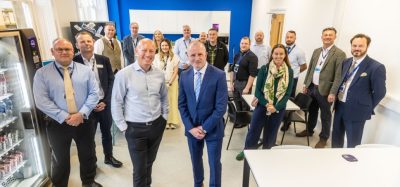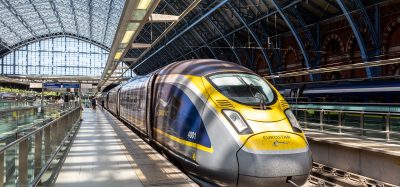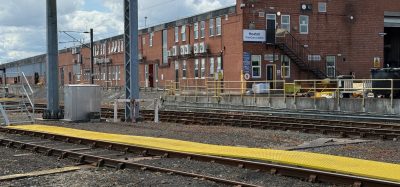Arriva: strengthening its German position
Posted: 8 April 2008 | | No comments yet
Arriva Deutschland GmbH is one of the largest private rail operators in Germany, operating more than 17 million train kilometres per year. It also provides cross border services into the Netherlands and Czech Republic. However, it’s not only railways that are of great interest to Arriva Deutschland; the bus and logistics sectors are growing in importance too.
Arriva Deutschland GmbH is one of the largest private rail operators in Germany, operating more than 17 million train kilometres per year. It also provides cross border services into the Netherlands and Czech Republic. However, it’s not only railways that are of great interest to Arriva Deutschland; the bus and logistics sectors are growing in importance too.
Arriva Deutschland GmbH is one of the largest private rail operators in Germany, operating more than 17 million train kilometres per year. It also provides cross border services into the Netherlands and Czech Republic. However, it’s not only railways that are of great interest to Arriva Deutschland; the bus and logistics sectors are growing in importance too.
Many private railway operators have appeared in the market since the inception of deregulation in Germany. Arriva Deutschland, being one of them, came into being in 2003, when one of Europe’s largest transport companies, Arriva, decided it was time to enter the marketplace. Shortly after foundation, the first acquisition took place in April 2004 when the company purchased the first privately founded rail company in Germany – Prignitzer Eisenbahn. Over the years, Prignitzer Eisenbahn had developed into a great success story. Starting with only one train in 1996 in a part of Brandenburg, today the company operates 57 trains in Berlin, Brandenburg and Mecklenburg-Vorpommern and has also been able to step into one of Germany’s important local markets in Northrhine-Westfalia.
To widen its presence across Germany, Arriva Deutschland concluded negotiations with the Federal State of Bavaria, acquiring 78% of federal-state-owned company Regentalbahn AG in autumn 2005. In 2006, this rose to 100% making Arriva Deutschland the sole shareholder of the company. This acquisition gained Arriva great local railway experience with Regentalbahn operating in Bavaria, Saxony and Thuringia, as well as cross border services into the Czech Republic for more than 100 years. Arriva’s presence in Germany was widened at the beginning of 2007 when Arriva Deutschland acquired 82.9% of Osthannoversche Eisenbahnen AG, a shareholder in railway company metronom which operates four franchises in Lower Saxony.
But Germany’s railway market is not the only area of interest. Arriva plc grew from its start as a motor dealer through acquisitions of bus businesses, so it was an obvious step for Arriva Deutschland to take a close look at the bus market as well. This resulted in the acquisition of its first bus company in Germany, Autobus Sippel GmbH in 2005, which operates more than 200 buses in Hessen and provides staff transport at Frankfurt airport. This was followed by the acquisition of Verkehrsbetriebe Bils GmbH, operating in Northrhine-Westfalia in 2006, as well as Neißeverkehr GmbH in Brandenburg in 2007. The bus position in Germany was enhanced with the acquisition of Osthannoversche Eisenbahnen AG, which operates more than 400 buses in Lower Saxony, bringing the total Arriva Deutschland bus fleet to 880.
Towards the end of 2007, Arriva Deutschland made a great step in growth by starting operation of three new tenders. Railway company metronom had won two franchises operating in Lower Saxony covering the Hamburg area and strengthening metronom’s brand. But the real challenge had been the set up for operation of new border-crossing service alex. The franchise was tendered out in a European-wide tender in 2006 and was won by Arriva’s Regentalbahn. Since its start in December 2007, alex is operating a twice-daily Munich – Prague service but also connects through to Hof.
As one of the largest transport operators in the German market, it is vital for Arriva Deutschland to focus on its development strategy. The intention is to build on the current position over the coming years to deliver growth through franchise wins and acquisitions.
Arriva Deutschland has a good track record of growth over recent years since it entered the market. Growth was not only established through acquisitions of companies, but also through working in partnerships and winning tenders. Working in partnerships does not only mean working with other train companies and setting up joint ventures, but also covers the development of close relationships with client bodies and administrations. The company’s main target is to make people in the rail industry conscious that we are present and willing to work with them – but we also need to make them aware of our great expertise, knowledge and skills. We can draw on our local experience, but we also have international best practice sharing across the Arriva group. Nothing is more important to a reliable passenger transport supplier than working closely with the client bodies and industry to fulfil their requirements and offer the best service possible to the public.
As a company which operates more than 17 million train kilometres and 50 million bus kilometres with more than 3,000 employees, local responsibility of the subsidiaries within Arriva Deutschland plays a vital role. Each operating company is charged with monitoring market opportunities and competitor intelligence in its area. This is delivered through a decentralised organisation and group management by Arriva Deutschland. The secret of a successful operation within Arriva Deutschland is the use of local resources, meaning the local management continue to take the lead, being responsible for local growth and reliable services but also having secure structures in place. Locally-managed businesses are well equipped to use their people’s expertise and experience to secure new work to sustain their regional operations and locally-managed workshop facilities provide independence from Deutsche Bahn provided engineering support.
Aiming to meet ambitious growth targets over the coming years, Arriva Deutschland is looking at every avenue of growth which makes sound business sense. Growth can not only be achieved via tender wins but also through partnerships or joint ventures. It is important for Arriva Deutschland to let the sector know that we are open to partnership proposals. Growth for Arriva Deutschland does not only mean having to have full ownership of a company, but can be developed from a smaller stake-holding position in the right business.
Growth within the rail sector is not the only way to grow as a company. Having a close look into adjacent markets can bring growth as well, which Arriva Deutschland is actively doing.
Arriva Deutschland is in the strong position of being the largest private rail infrastructure operator in Germany. Its subsidiaries operate an extensive network of rail lines: Osthannoversche Eisenbahnen AG operates more than 294 kilometres in Lower Saxony; Prignitzer Eisenbahn has approximately 109 kilometres in Brandenburg, including two newly reopened lines; and Regentalbahn AG operates 51 kilometres in Bavaria. Opportunities to widen the network through acquisition or reopening of abandoned lines will also provide growth for the business.
Infrastructure is not the only important adjacent market showing potential for growth. Arriva Deutschland’s subsidiaries all run their own workshops across Germany, representing a great network and offering a great opportunity for contracting into additional work. This makes it practical for Arriva Deutschland to be flexible in where to repair its vehicles. The geographic reach and ability to offer work to third parties brings a wider range to Arriva Deutschland’s capabilities and presence on the market. Being a local operator for public transport and having local workshops makes the company unique in its ability to offer service to third parties in areas where there is no other alternative. Arriva Deutschland operates a big workshop in northern Germany, mainly set up for heavy maintenance which is widely used by third parties, due to its reputation for delivering good service and reliability. Expanding the engineering capability can contribute to the business growth.
Development of existing business is not enough for the business growth Arriva Deutschland is aiming to achieve. Forward-looking is crucial. Always being aware of new technologies, innovations and being a step ahead of everybody else marks out an efficient and reliable operator like Arriva Deutschland.
Growing means expanding in the marketplace, operating more trains as well as buses, but also includes development of our workforce – the backbone of a successful company. As the marketplace for people is very competitive in the German transport industry and fully-trained employees can be hard to find, Arriva Deutschland is looking into opening its own academy. This would then be used to train employees for new franchises but also help develop new skills for existing employees.
As part of its portfolio in the railway market in Germany, Arriva Deutschland also owns an extensive cargo division. Each year, Arriva Deutschland carries approximately 4.4 million tonnes over 830 million train kilometres all over Germany but also delivers international freight, for example from Poland to France or Denmark to Switzerland. But the operations on the tracks are only part of the work; the company also manages warehousing for customers and distribution logistics. The third area within the logistic services Arriva Deutschland offers are freight handling at harbours in Lower Saxony, with a capacity of one million tonnes per year and a total sum of 500,000 m² stock capacity each year.
Arriva Deutschland has shown rapid but sustainable growth since joining the market and can build on this success story over the coming years. Arriva Deutschland will continue to grow from strength to strength.
Klaus Jacobs
Klaus Jacobs started his career in different functions within the automobile industry in Europe and the USA as well as in a director position at Freudenberg GmbH & Co. KG. He joined Arriva Deutschland in 2007 as Chief Executive Officer, taking on responsibility for Germany wide operations within the Arriva group.








